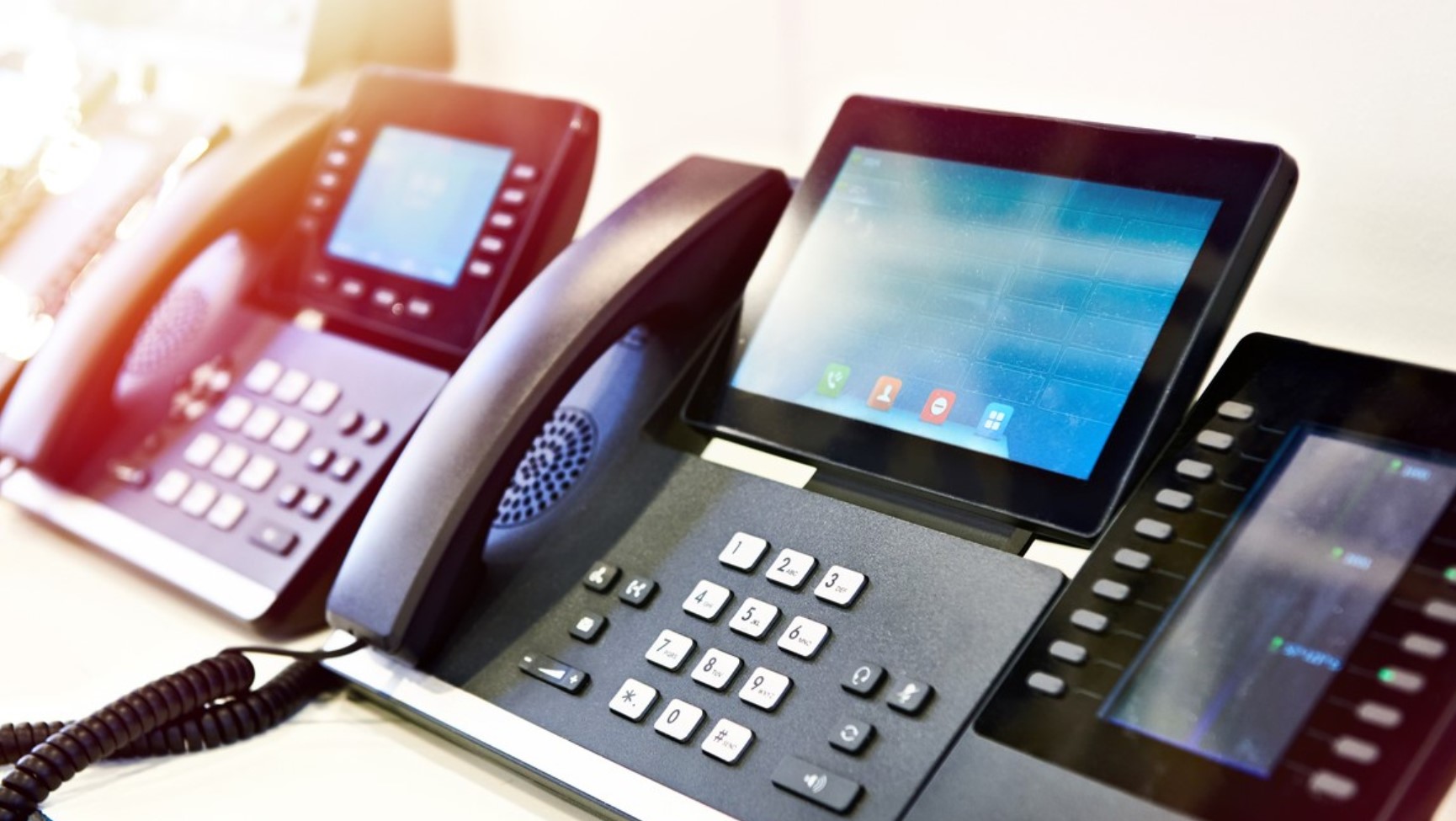Are you ready to take your business communication to the next level? One essential step is to get a business phone number and set up an office phone system. Having a dedicated business phone number not only adds professionalism to your brand but also enables seamless communication with clients and customers. In this article, we will walk you through the process of getting an office phone service, exploring different options, and providing valuable insights to help you make an informed decision. Get ready to revolutionize your business communication and unlock new opportunities with an efficient office phone system.
What is an Office Phone System?
An office phone system is a telecommunications network designed for use within an organization. It enables employees to make and receive calls both internally and externally, facilitating seamless communication. These systems often come with a range of features and functionalities tailored to meet the unique requirements of businesses.
Benefits of an Office Phone System
Implementing an office phone system offers numerous advantages. Firstly, it improves communication efficiency by enabling quick and direct conversations between team members and departments. Additionally, it enhances customer service by providing features such as call forwarding, voicemail, and interactive voice response (IVR) systems. Moreover, an office phone system can contribute to cost savings by leveraging internet-based technologies and reducing reliance on traditional landline services.
Choosing the Right Office Phone System
Selecting the right office phone system requires careful consideration of your business needs and available options. Start by assessing your communication requirements, including the number of employees, call volumes, and desired features. Consider factors like scalability, reliability, ease of use, and compatibility with your existing infrastructure. It is also crucial to evaluate the reputation and customer support of potential vendors.
Here’s a comparative table summarizing the information about choosing the right office phone system:
| Feature | Traditional Landline Systems | VoIP Phone Systems | Cloud Phone Systems | Mobile Phone Systems |
| Communication Method | Analog telephone lines | Internet-based | Internet-based | Mobile network |
| Scalability | Limited scalability | Highly scalable | Highly scalable | Highly scalable |
| Cost | Higher monthly costs | Lower overall costs | Lower overall costs | Variable costs |
| Installation and Configuration | Requires physical wiring | Quick and easy installation | Quick and easy installation | No additional installation |
| Features and Functionality | Limited features | Rich features and options | Rich features and options | Basic features |
| Integration with Existing Systems | Limited integration options | Extensive integration | Extensive integration | Limited integration |
| Mobility and Remote Access | Not applicable | Yes | Yes | Yes |
| Maintenance and Support | Limited support options | Varies by provider | Varies by provider | Varies by provider |
| Reliability and Call Quality | Reliable but dependent on infrastructure | Dependable with good internet connection | Dependable with good internet connection | Dependable with good mobile network coverage |
Please note that this table provides a general overview and there may be variations based on specific vendors and offerings.
Features to Consider
When evaluating office phone systems, pay attention to the following features:
- Call management features: Call forwarding, call waiting, call transfer, and conference calling.
- Voicemail and messaging: Voicemail-to-email transcription, personalized greetings, and unified messaging.
- Auto attendant: Interactive voice response (IVR) systems that route calls to the appropriate departments or extensions.
- Mobile integration: Integration with mobile devices to enable remote working and mobile calling.
- Analytics and reporting: Detailed call logs, performance metrics, and analytics for better insights and decision-making.
- Security and privacy: Encryption, secure voice transmission, and protection against unauthorized access.
Types of Office Phone Systems
There are various types of office phone systems available in the market. Let’s explore the most common options:
- Traditional Landline Systems:
- Description of traditional landline systems and their features.
- Pros and cons of using traditional landline systems.
- VoIP Phone Systems:
- Explanation of VoIP technology and its benefits.
- Pros and cons of VoIP phone systems.
- Cloud Phone Systems:
- Overview of cloud-based phone systems and their advantages.
- Pros and cons of cloud phone systems.
- Mobile Phone Systems:
- How mobile phone systems can be used for office communication.
- Pros and cons of mobile phone systems.
Setting Up an Office Phone System
To set up an office phone system, you need to follow these steps:
- Determine the required equipment, such as desk phones, headsets, or mobile devices.
- Install and configure the phone system hardware and software.
- Integrate the phone system with your existing infrastructure, including email, customer relationship management (CRM) tools, and other software.
- Provide training to employees on using the office phone system effectively.
- Establish maintenance and support procedures to ensure smooth operation and timely troubleshooting.
Conclusion
Acquiring an office phone system that aligns with your business requirements is crucial for efficient communication and streamlined operations. Consider the different types of phone systems available, evaluate their features, and choose a reputable vendor. Ensure your chosen system can scale with your business and provides the necessary features to enhance productivity and customer satisfaction.
FAQs
- Can I use my existing landline phones with a VoIP phone system? Yes, most VoIP phone systems support analog telephone adapters (ATAs) that allow you to connect your traditional landline phones.
- Can I integrate the office phone system with my email and CRM software? Many modern office phone systems offer integration capabilities with popular email clients and CRM software to streamline communication and customer management.
- Is it possible to have remote access to the office phone system? Yes, with the advancements in technology, many office phone systems provide remote access options, allowing employees to make and receive calls from anywhere with an internet connection.
- Can I transfer my existing phone numbers to a new office phone system? In most cases, it is possible to transfer your existing phone numbers to a new phone system. Consult with the vendor to understand the porting process and any associated costs.
- What kind of customer support can I expect from an office phone system vendor? Reliable vendors typically offer various support options, including phone, email, and online chat. It’s essential to inquire about their support services and response times before making a purchase decision.

